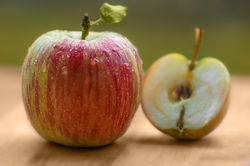Hydrate For Health
- bagr jane
- Oct 15, 2017
- 2 min read
Your body is nearly two-thirds water and so it is really important that you consume enough fluid to stay hydrated and healthy. If you don’t get enough flui
d you may feel tired, get headaches and not perform at your best.
Water can be an acquired taste, so you may find it hard to go from drinking none to drinking 2 litres in the space of a few days. Like getting into any good habit, it makes sense to start incorporating small measures first then build up slowly to your goal. Ideally, this should be pure, filtered water, natural mineral water or herbal teas.

Some easy ways to boost your water intake
Put a glass of water by your bed and drink it when you wake up
Carry a 500ml bottle of water around
to sip throughout the day (when you get used to this, you can refill half-way through the day and boost your intake to 1 litre)
Dilute fruit juices 50/50 with water
Make water more exciting by flavouring it with fresh lemon, lime, ginger, mint, cucumber, strawberries etc. or have it hot as a herb or fruit tea
Fruit and vegetables consist of around 90% water. 2 pieces of fruit and 2 servings of vegetables can provide 500ml water. Also soups and stews can also contribute to daily fluid intake. Aim to choose soups with a low salt content because high salt content can exacerbate dehydration
When you feel hungry, drink a glass of water – thirst is often mistaken for hunger
Always have a glass of water with a coffee and 2 glasses of water with every alcoholic drink as these have very dehydrating effect on the body
Carry water in safe containers. Hard plastic bottles (#7 plastic) can leach a harmful plastics chemical called bisphenol A (BPA) into water. Carry stainless steel or other BPA-free bottles. Don’t reuse bottled water bottles. The plastic can harbour bacteria and break down to release plastics chemicals.
Getting water from the private well? Get it tested!

Filtered Tap Water: Drink it, cook with it
• Choose a filter certified to remove contaminants found in your water: (https://www.healthy-house.co.uk/water/drinking-water-filters) - the effectiveness of filters varies.
• Carbon filters (pitcher or tap-mounted) are affordable and reduce many common water contaminants, like lead and by-products of the disinfection process used to treat municipal tap water.
• Install a reverse osmosis filter if you can afford it, to remove contaminants that carbon filters can’t eliminate, like arsenic and perchlorate (rocket fuel).
• Change your water filters on time. Old filters aren’t safe – they can harbor bacteria and let contaminants through.
Sources:
Patrick Holford (2008). Optimum Nutrition Made Easy: The simple way to achieve optimum health. London: Piatkus.
http://www.naturalhydrationcouncil.org.uk/hydration-facts
http://www.ewg.org/research/ewgs-guide-safe-drinking-water
http://www.nutrition.org.uk/healthyliving/hydration/healthy-hydration-guide.html



















Comments